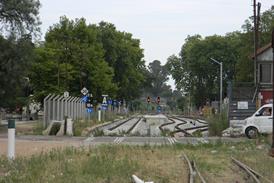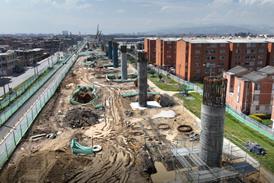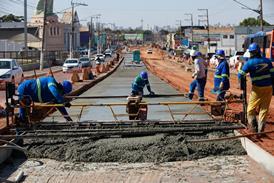ON OCTOBER 7 the operator of Britain’s national railway network entered administration, after the High Court granted a Railway Administration Order at the request of Transport Secretary Stephen Byers. Alan Bloom, Chris Hill, Scott Martin and Mike Rollings of Ernst & Young were appointed ’joint special railway administrators’, charged with keeping the network operational and seeking to agree terms under which Railtrack’s regulated activities as infrastructure operator could be transferred out of administration as a going concern.
In a sudden and unexpected move, Byers had gone to the High Court after refusing a request from Railtrack for more government money. This would have been on top of a funding package agreed in April this year, which included £1·5bn brought forward from 2006-11 (RG 5.01 p295). With no other means to avoid insolvency, the directors of Railtrack ’reluctantly accepted that there was no credible alternative to administration’, regretting that the government had withdrawn its support which had been ’fundamental to the financial viability of the group since privatisation’.
Byers intends that Railtrack plc will emerge from administration as a new private company without shareholders, with its management ’freed from the requirement to deliver returns on publicly-traded shares’. Any financial surplus generated by the new company, to be set up in the form of a non-profit-making trust, would be re-invested in the network. Directors would initially be appointed by the Strategic Rail Authority, including ’key industry stakeholders’ such as train operators. New legislation is also planned ’to rationalise the present regulatory structure to provide stronger strategic direction, while reducing the burdens of day-to-day interference in the industry and a self-defeating system of penalties and compensation.’




















